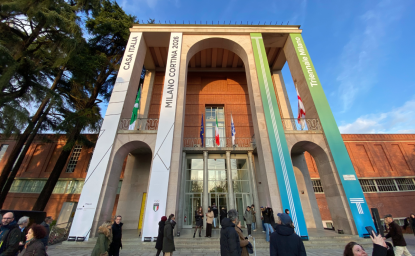Under the designation “patient-led research” or “citizen-driven biomedical research,” citizens, patients, and families have increasingly become the leading force in the initiation and conduct of health research projects. These bio-citizens are pursuing a range of activities from analyses of genomic data for diagnosing rare diseases, identification of potential therapeutic drugs, organization and crowdfunding of clinical trial cohorts, and even self-surveillance or self-experimentation.
One member of this emerging movement is Dana Lewis, a Type 1 diabetic, who – out of frustration with her continuous glucose monitor – made her own closed-loop artificial pancreas and released it for other end-users online. And one group of bio-citizens, Four Thieves Vinegar, has published a how-to guide for making your own epinephrine autoinjectors at-home in opposition to skyrocketing market prices. While Dana and Four Thieves are not selling these innovations, they are disseminating the necessary knowledge for reproducing the devices on your own.
A professor of computer engineering, Matt Might, worked with many physicians for multiple years to find even a preliminary diagnosis for his son, who has a rare genetic disease. Just as he analyses the algorithms of a computer program, Matt hunted the genetic mechanisms responsible for Bertrand’s disease with the hope of finding targets for experimental therapies. His subsequent work in building a community of families whose children possessed similar symptoms ultimately aided researchers and physicians in the discovery of a more concrete diagnosis for the rare neurological disorder.
What these stories often have in common is a taste for entrepreneurship. Sean Ahrens, a young Californian with Crohn’s disease, harnessed funding from a few start-up accelerators to build Crohnology, an open platform where patients share and rate their experiences with medications, dietary changes and supplements, leveraging data that had previously gone to waste. Sean went as far as ingesting pig worms, meticulously documenting the daily effect on his Crohn’s, and publishing his findings in a renowned medical journal.
In this report, we dive deep into these stories, along with many other unique and inspiring case studies. In doing so, we have mapped the barriers to innovation, knowledge legitimacy, and the ethical and governance challenges faced by bio-citizens.
The next step is to foster legitimacy for citizen-driven biomedical innovation by supporting citizens and patients to document and share their data, evidence and ethical concerns in ongoing conversations with regulators and society at large.
Because they respect biological safety levels and function as a peer-review culture, community bio-labs constitute an ideal ecosystem for mentorship in the most current bioengineering techniques and their related risk-benefit trade-offs. By the same token, these labs are the perfect place to start a continuing dialogue about how to adapt our regulatory standards to an increasingly democratized form of biomedical innovation.
We need empowerment, but also greater collective intelligence. If risks are properly managed without dampening the energy of this new movement, we might all gain in the process.




